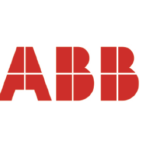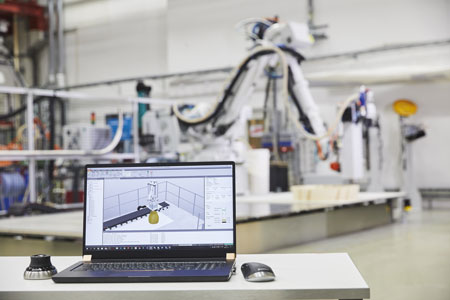 ABB meets all the requirements of industrial companies, with models that can handle a wide spectrum of tasks across the entire production cycle
ABB meets all the requirements of industrial companies, with models that can handle a wide spectrum of tasks across the entire production cycle
With a broad range of 6-axis robots, ABB meets all the requirements of industrial companies, with models that can handle a wide spectrum of tasks across the entire production cycle, offering full flexibility.
Specifically in the plastic industry, ABB expertise ranges from simple one-robot installations for plastic resin processing to complex automation plants for large factories producing advanced composite materials. All industries, from automotive to packaging, from life science to electronics, can find an effective solution with 6-axis robotic automation, thanks to the breadth and depth of ABB Robotics’ offer and skills.
“ABB’s market approach is focused on products and most of all solutions,” explains Alberto Vimercati, Sales Manager, Robotics & Discrete Automation, General Industry, “developed in collaboration both with end customers and with OEMs. Robots are general-purpose machines in principle, but ABB offers robotic solutions or “packages” specifically designed for the plastic industry, covering all segments and applications: automotive components, eyewear, chairs, design complements, cutlery, soundproofing panels, earthquake emergency shelters and so on. Every process can be automated with robots and for each process ABB offers suitable robot sizes and models.”
Successful collaboration: from industrial robots to cobots
Collaborative robots are entering the plastic industry in great style, taking up the production of an extensive range of plastic parts, eyewear, fittings and many small items that require machine tending, handling and assembling operations. From single-arm YuMi to small articulated robots such as IRB 1100 and IRB 1200, all six-axis models are carving out a market niche, up to 4-axis Scara robots for gasketing, including ceiling-mounted versions.
Like any other sector, the plastic industry can rely on ABB’s portfolio of advance and digital services. The Connected Services suite, an integral part of the ABB Ability platform, allows to connect robots to a server, in wireless or wired mode, to access a wide range of services options, predictive and proactive maintenance, program backup and restore, analysis and optimization of single robots or entire fleets. With Remote Service, ABB experts can provide remote support, directly connecting to the work cell and interacting with the digital twin in full safety conditions.
Offline programming
Offline programming (OLP) is currently the best tool to maximize the ROI of robotic systems. RobotStudio, ABB’s simulation and offline programming software, allows to program all robots from a PC in the office without stopping production. RobotStudio is based on ABB VirtualController, an identical copy of the software that controls the operation of robots in production. In this way, highly realistic simulations can be made, using real programs and configuration files, identical to the plant floor.
The robot becomes a 3D printer
The latest frontier of robot applications in the plastic industry is additive manufacturing (AM), or 3D printing. ABB offers a 3DPrinting feature included in the RobotStudio Power Pac package, with toolpath management capabilities designed for companies that extrude all types of materials, mainly plastic, resin, polyester and rubber. From the workpiece CAD model, the software extrapolates the slices and generates the toolpaths for layer deposition by the robot. The XYZ points of each slice are translated into six-coordinate points for robots by a post-processor specifically developed for 3D printing. The solution can simulate material deposition rates, check the reachability of all points and manage additional external axes, for instance rotary tables or traversing guides.



